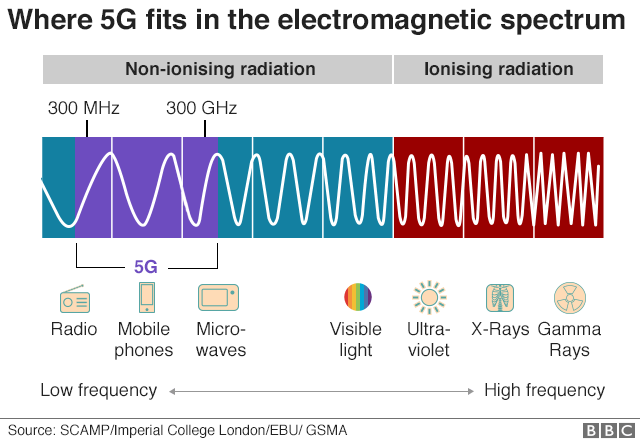5G Radiation and Skin area Cancer

This article discusses the topic of 5G radiation, which is a non-ionizing form of electromagnetic radiation. Because 5G radiation is small, it doesn't possess the capability of breaking the bonds between chemical molecules in biological tissues or cause any changes to cells. It isn't known whether 5G radiation can affect the risk of developing skin cancer, and no evidence has been found to suggest that it can cause any other diseases.
High-frequency millimeter wave radiation
High-frequency millimeter wave radiation from mobile devices and wireless networks could cause health issues to human beings. There are many ways in which this radiation could cause harm. In certain instances the radiation could cause damage to a person's DNA. In 5g towers radiation may cause harm to other areas within the body such as the brain.

Recent studies have shown that 5G technology could result in the heating of tissues. 5g towers radiation is why scientists from International Council on Non-Ionizing Radiation Protection (ICNIRP) has asked for a review of the existing safety standards for biological and thermal safety. The current standards of exposure are not adequate to protect individuals from excessive heating in the event of exposure to pulsed millimeter wave radiation.
Skin cancer risk
There is no definitive answer at present to the question of whether 5G radiation could cause skin cancer. However, it is believed that 5G RF-EMFs behave as high-LET ionizing radiations. In turn, they can produce high levels of free radicals within the skin. The FCC hasn't issued any specific guidelines about the dangers of 5G technology, and the debate is ongoing.
While there are plenty of studies on the effects of radio waves that are higher frequency on the human body, they have remained largely restricted in their the scope. However, there is concern over the effects of millimeter-wavelength exposure on oxidative stress and gene expression. These effects may extend to the skin and various organs, such as the brain.
The impact of other illnesses
An innovative new technology in wireless, called 5G, is rapidly growing in popularity However, researchers are concerned about the potential health hazards. The technology will dramatically increase the quantity of electromagnetic radiation that is found in our environment. This is a problem that has led to debates in a variety of countries, including Switzerland. In September 2017 390 doctors and scientists were in favor of an end to 5G deployment. This call was ignored by the European Commission, which is in charge of regulating the use of technology like 5G.
As a result there is a need for more research to assess the health effects of 5G. In the meantime studies have proven that 5G doesn't cause the same effects in humans as the old mobile networks. It also does not spread the new coronavirus type. Furthermore, it does not make people more vulnerable to infections caused by viruses.
The measurement of exposure
Monitoring exposure to radiation from 5G is a crucial aspect of the security of 5G networks. There are https://gamerzonegenie.com/how-exactly-does-emf-radiation-function/ to determine exposure. One method is measuring the power of radio waves absorbed by human tissue. Another involves measuring the amount of radiofrequency energy emitted by an object. Radiofrequency energy (RF) refers to an electromagnetic field of energy that originates from radio transmitters.
In the United States, the FCC has imposed a restriction on the energy density of 5G mobile devices. These tests can only measure power density at the distance of several inches, and they do not require measurements of every beam. FCC does not have to measure every beam. However the power density of each beam can be determined using computer simulation. The worst case scenario is selected according to the configuration of each beam.
The study has its limitations
There's been a lot of discussion over whether 5G radiation will affect the health of people. For instance, the Swiss authorities, for example, has produced an assessment that concludes that 5G technology does not cause health effects in the short term, but there are no studies which have shown long-term impacts. However, this report also contains several issues, including biased reporting.

The power and frequency of radio waves that carry energy are determined by the frequency. The energy carried by a millimetre-wave will be similar to the frequency of radio waves currently however, they're less visible and will be more suitable for environments with high density, since they will not be easily block by walls or glass. Urban areas with high density would require a large number of small, low-power sites, and suburban areas will be better served by 5G sites that operate at lower frequency.
